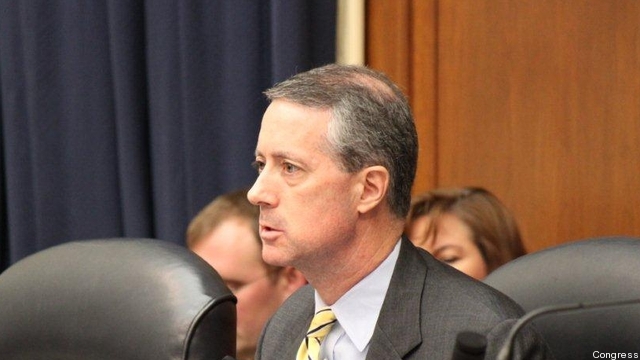Rep. Thornberry: Hill Fights Mean Sequestration Happens; Then We Can Fix
Posted on
 WASHINGTON: Political gridlock has gotten so bad that the best bet to stop sequestration is after it starts, Rep. Mac Thornberry believes. Only a real crisis — not just an impending one — can force the two parties to cut a deal, he told Breaking Defense. But, the conservative Republican emphasized, he stuck to the House GOP line that further tax revenues are off the table.
WASHINGTON: Political gridlock has gotten so bad that the best bet to stop sequestration is after it starts, Rep. Mac Thornberry believes. Only a real crisis — not just an impending one — can force the two parties to cut a deal, he told Breaking Defense. But, the conservative Republican emphasized, he stuck to the House GOP line that further tax revenues are off the table.
“I still have hope,” Thornberry said when I accosted him after he spoke this morning at the National Defense Industrial Association’s annual special operations conference. Thornberry is Vice-Chairman of the House Armed Services Committee and also chairs the “emerging threats” panel on HASC, a subcommittee recently empowered with new authority over intelligence matters, and his speech mostly addressed issues specific to special operations. But he started by lamenting the looming spending cuts known as the sequester — arguing that the Democratic-controlled Senate had failed to act to stop them. And he suggested sequestration would at least start to be implemented before Congress could get its act together to turn it off.
Only this month, with the services and Deputy Defense Secretary Ash Carter issuing memos ordering cost-cutting measures and warning of grim cuts to readiness accounts, Thornberry said, have most politicians really begun to understand how badly this is going to hurt.
“I haven’t gamed it all out,” Thornberry told Breaking Defense. “What I know is… other than the sequestration itself, there’s not really a precipitating event before March first. But once you hit March first, then you have sequestration kick in; the pain begins. Then you have the CR (Continuing Resolution) that comes up later in March. Tou have the budget resolutions, the debt ceiling that’s coming up.”
With all these trains derailing all at once, “it’s got to focus everybody’s attention not just on the pain to the military, but the overall budget,” he told Breaking Defense. “If you look at the whole picture, there’s a chance to substitute other savings for the sequestration.”
Republicans know where they want to cut: “Two-thirds of the budget is entitlement spending,” said Thornberry. (That’s a trifle high: Even the conservative Heritage Foundation puts the total at 62 percent, while the slightly-left-of-center Brookings Institution, using a narrower definition of “entitlements,” puts it at 45 percent).
Democrats, of course, want to raise revenues, if not by increasing marginal tax rates on income — as in the New Year’s Day deal that delayed sequestration until March — then at least by closing so-called tax loopholes. Thornberry started shaking his head before I’d even finished asking the question.
“I think taxes are decided,” he said flatly. “Maybe a revenue-neutral tax reform is possible, but taxes are decided. Now the question is spending.”
Even if Congress somehow averts the self-inflicted crises of sequestration — imposed on itself by the 2011 Budget Control Act because the “Super Committee” failed to reach a debt-reduction deal — and the Continuing Resolution (which sets spending at 2012 levels in the absence of a proper appropriations bill) the military is hardly out of the woods, Thornberry said.
“[Even] if you set those two issues aside, there’s not going to be a lot of money for defense in the future,” Thornberry warned the conference audience. “Our country has dug ourselves a very deep financial hole.”
Edited 2:15 pm
Subscribe to our newsletter
Promotions, new products and sales. Directly to your inbox.
